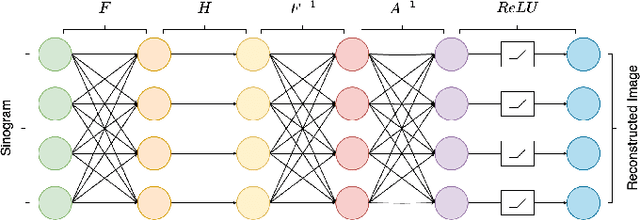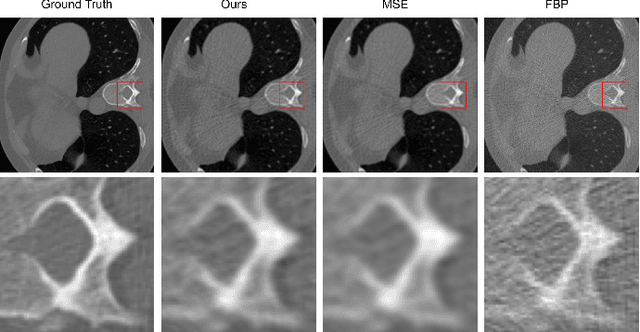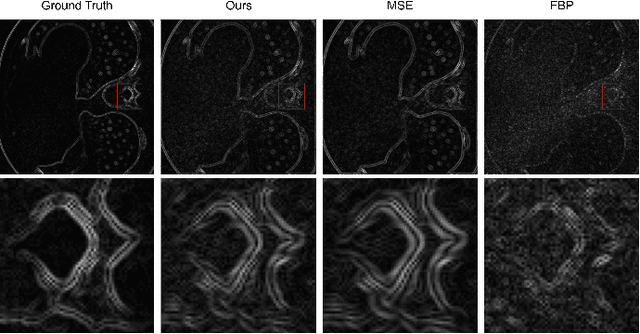Yuzhong Zhou
A 2D Sinogram-Based Approach to Defect Localization in Computed Tomography
Jan 29, 2024Abstract:The rise of deep learning has introduced a transformative era in the field of image processing, particularly in the context of computed tomography. Deep learning has made a significant contribution to the field of industrial Computed Tomography. However, many defect detection algorithms are applied directly to the reconstructed domain, often disregarding the raw sensor data. This paper shifts the focus to the use of sinograms. Within this framework, we present a comprehensive three-step deep learning algorithm, designed to identify and analyze defects within objects without resorting to image reconstruction. These three steps are defect segmentation, mask isolation, and defect analysis. We use a U-Net-based architecture for defect segmentation. Our method achieves the Intersection over Union of 92.02% on our simulated data, with an average position error of 1.3 pixels for defect detection on a 512-pixel-wide detector.
Data-Driven Filter Design in FBP: Transforming CT Reconstruction with Trainable Fourier Series
Jan 29, 2024



Abstract:In this study, we introduce a Fourier series-based trainable filter for computed tomography (CT) reconstruction within the filtered backprojection (FBP) framework. This method overcomes the limitation in noise reduction, inherent in conventional FBP methods, by optimizing Fourier series coefficients to construct the filter. This method enables robust performance across different resolution scales and maintains computational efficiency with minimal increment for the trainable parameters compared to other deep learning frameworks. Additionally, we propose Gaussian edge-enhanced (GEE) loss function that prioritizes the $L_1$ norm of high-frequency magnitudes, effectively countering the blurring problems prevalent in mean squared error (MSE) approaches. The model's foundation in the FBP algorithm ensures excellent interpretability, as it relies on a data-driven filter with all other parameters derived through rigorous mathematical procedures. Designed as a plug-and-play solution, our Fourier series-based filter can be easily integrated into existing CT reconstruction models, making it a versatile tool for a wide range of practical applications. Our research presents a robust and scalable method that expands the utility of FBP in both medical and scientific imaging.
 Add to Chrome
Add to Chrome Add to Firefox
Add to Firefox Add to Edge
Add to Edge